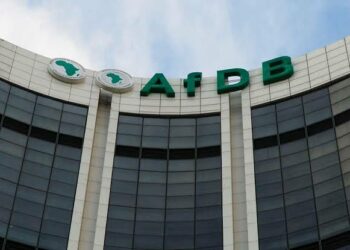Attracting New Oil & Gas Investment Amidst Escalating Crude Thef
By CHIKA IZUORA, Lagos
A presidential delegation that recently inspected key oil facilities in the Niger Delta region has revealed a scary clandestine cartel that has partially plunged the country into economic mess.
According to the delegation, Nigeria currently loses $4Million daily to crude theft, vandalisation of assets among others.
The country’s National Security Adviser, Nuhu Ribadu, penultimate Saturday made the disclosure when he led a presidential delegation to inspect oil and gas facilities at Owaza in Abia and Odogwa in Etche Local Government Area of Rivers.
said Nigeria currently loses 400,000 barrels of crude oil daily to oil thieves and vandals despite efforts to end the menace in the country.
The Ribadu, by his own assessment said that Nigeria currently loses $4 million daily to local and international crude oil thieves and vandals daily.
According to the National Security Adviser, the activities of oil thieves and pipeline vandals have impacted negatively on the nation’s economy and are partly responsible for the rising cost of living in the country.
Ribadu, said, “It’s unfortunate that few individuals would steal our common resources, and in the process cause unbelievable loss to both the nation, communities and the people.
“Nigeria has the capacity to produce 2 million barrels of crude daily, but we are currently producing less than 1.6 million barrels due to theft and vandalism of pipelines.
“So, we are talking about 400,000 barrels of crude oil going to waste with few criminals and economic saboteurs not even getting much out of it.”
He said that the operators of artisanal refineries collect a small quantity of crude oil when they break the pipelines while larger volumes of the oil are spilled on the environment.
He added, “The value of 400,000 barrels of oil today is about 4 million dollars, and every day, we lose this amount because of this irresponsible behaviour.
“If you multiply $4 million by 365 days – one year, you will see that it is a lot of money running into billions of dollars, ($1,460,000,000).”
Speaking further, Ribadu said, “Currently, the country is in desperate need of money as the Naira is continuously losing its value because we earn less money.
“If we earn more money, it will not only help strengthen our currency but reflect in everything, including cost of living in the country.”
He noted that President Bola Tinubu’s administration was concerned about the problem and was already taking actionable steps to address the matter.
He said huge investments made by the government in building infrastructures for the common good of all were being destroyed by few individuals, and in the process, destroying the environment.
He, therefore, called for a united front to tackle oil theft and end decades of attacks on the nation’s oil and gas infrastructures.
He said, “We are working hard with the security forces and those employed by the Nigerian National Petroleum Company (NNPC) Limited to secure our facilities and end this madness called oil theft.”
General, Nigeria’s oil industry value chain has been in progressive decline.
According to the Q2, 2023 GDP report by the National Bureau of Statistics, oil refining contracted by 35.6 per cent while Crude Petroleum and Gas, 13.4 per cent.
However, data from the Organization of Petroleum Exporting Countries, OPEC, said that improved security situation in the oil rich Niger Delta area is helping Nigeria to inch up oil production activities.
In addition, output from other countries that had witnessed downward production are squaring up which may likely lead to output cut by the OPEC.
The OPEC’s core members may need to consider further production cuts as some of the group’s most troubled nations achieve unexpected supply growth, according to Citigroup Inc.
The “fragile five” of Nigeria, Iran, Iraq, Libya and Venezuela which have struggled with output losses and disruptions for the past few years will add roughly 900,000 barrels a day of production this year and at least the same in 2024, the bank estimates.
That’s enough to satisfy coming growth in oil demand, it said.
“All of a sudden they are sources of growth, and they will be sources of growth for five, four years or maybe even longer in the case of Iraq and Venezuela,” Ed Morse, Citigroup’s head of commodities research, said in an interview. “It strikes us that the core OPEC+ countries have a problem on their hands.”
The five nations are all showing positive signs of supply recovery, while growth in oil demand will be constrained by fading expansion in China, Morse said.
Iranian output has recovered as it sends a flood of exports to China while engaging in tentative diplomacy with the US. Iraq may restore supplies when it reaches agreement on a shuttered pipeline to Turkey, and also add capacity.
Nigeria has improved security in its restive oil-rich delta, Venezuela is in talks with Washington on easing sanctions, and even Libya, long wracked by instability, has potential for expansion.
As a result, OPEC leader Saudi Arabia and its Persian Gulf allies which have slashed production this year to shore up crude prices may face pressure to cut output further, Morse said. The kingdom has already curbed supplies to a two-year low near 9 million barrels a day.
“It’ll be a big problem,” Morse said. “I think they’ll have to cut, and I don’t know how easy it is for them to do that.”
In addition to improved security Nigeria is planning to hold an international roadshow to attract investments in its upstream sector.
The Nigerian Upstream Petroleum Regulatory Commission (NUPRC) plans to organize soon an international roadshow to pitch upstream investments in the country, which looks to boost its oil production and significantly raise its natural gas output.
The NUPRC plans to organize in the coming weeks its first Nigerian Upstream International Investment and Financial Roadshow (NUIIFR) to allow upstream players to network and discuss financial structures.
“Whereas the global imperatives for energy transition is clear and justified, the need for Africa’s energy security, economic development and prosperity cannot be overemphasised,” the agency said.
Nigeria aims to significantly increase its oil production to up to 1.7 million barrels per day (bpd) by November 2023, hoping to win a higher quota in the OPEC+ agreement, Gabriel Tanimu Aduda, Permanent Secretary at Nigeria’s Ministry of Petroleum Resources, said.
Nigeria has consistently failed to produce to its quota in the OPEC+ agreement. The combination of pipeline vandalism and oil theft with a lack of investment in capacity has made Nigeria the biggest laggard in crude oil production in the OPEC+ alliance. Oil theft and pipeline vandalism have long plagued Nigeria’s upstream oil and gas industry, driving majors out of the country and often resulting in force majeure at the key crude oil export terminals.
Nigeria’s quota was 1.742 million bpd earlier this year, but due to its underproduction of more than 400,000 bpd, the output cap for Nigeria was lowered to 1.38 million bpd at the OPEC+ meeting in early June.
NATIONAL ECONOMY recalls that despite return of fragile peace in the Nigeria Delta region which hosts bulk of the nations oil reserve, the second quarter of 2023 recorded an average daily oil production of 1.22 million barrels per day (mbpd).
This according to the NBS, was much lower than the daily average production of 1.43mbpd recorded in the same quarter of 2022 by 0.22mbpd and lower than the first quarter of 2023 production volume of 1.51 mbpd by 0.29mbpd.
The real growth of the oil sector was 13.43 per cent (year-on-year) in Q2 2023, indicating a decrease of 1.66 per cent points relative to the rate recorded in the corresponding quarter of 2022 (-11.77 per cent).
Growth also decreased by 9.22 per cent points when compared to Q1 2023 which was –4.21 per cent.
On a quarter-on-quarter basis, the oil sector recorded a growth rate of -14.12 per cent in Q2 2023 and contributed 5.34 per cent to the total real GDP in Q2 2023, down from the figure recorded in the corresponding period of 2022 and down from the preceding quarter, where it contributed 6.33 per cent and 6.21 per cent respectively.
The Agency further said the non-oil sector grew by 3.58 per cent in real terms during the reference quarter (Q2 2023). This rate was lower by 1.19 per cent points compared to the rate recorded in the same quarter of 2022 and 0.81 per cent points higher than the first quarter of 2023. This sector was driven in the second quarter of 2023 mainly by Information and Communication.
In real terms, the non-oil sector contributed 94.66 per cent to the nation’s GDP in the second quarter of 2023, higher than the share recorded in the second quarter of 2022 which was 93.67 per cent and higher than the first quarter of 2023 recorded as 93.79 per cent.
“The Mining & Quarrying sector consists of Crude Petroleum and Natural Gas, Coal Mining, Metal ore and Quarrying and other Minerals sub-activities. This sector grew nominally by -7.11 per cent (year-on-year) in Q2 2023.
Metal Ores exhibited the highest growth rate of all the sub-activities at 186.40 per cent followed by quarrying and other minerals activity at 60.83 per cent.
However, Crude Petroleum and Natural gas was the main contributor to the sector with a weight of 85.80 per cent in Q2 2023.





